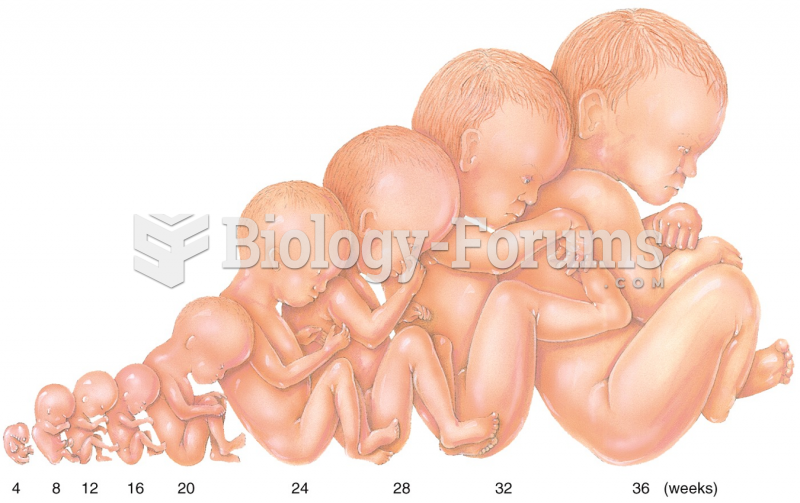|
|
|
Women are 50% to 75% more likely than men to experience an adverse drug reaction.
To prove that stomach ulcers were caused by bacteria and not by stress, a researcher consumed an entire laboratory beaker full of bacterial culture. After this, he did indeed develop stomach ulcers, and won the Nobel Prize for his discovery.
The top five reasons that children stay home from school are as follows: colds, stomach flu (gastroenteritis), ear infection (otitis media), pink eye (conjunctivitis), and sore throat.
On average, someone in the United States has a stroke about every 40 seconds. This is about 795,000 people per year.
More than 30% of American adults, and about 12% of children utilize health care approaches that were developed outside of conventional medicine.







